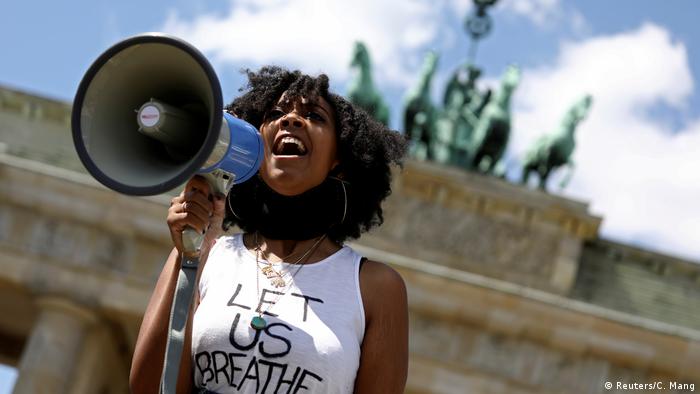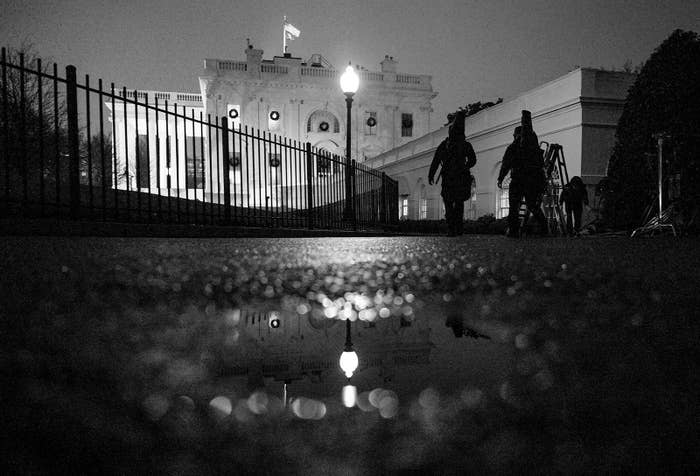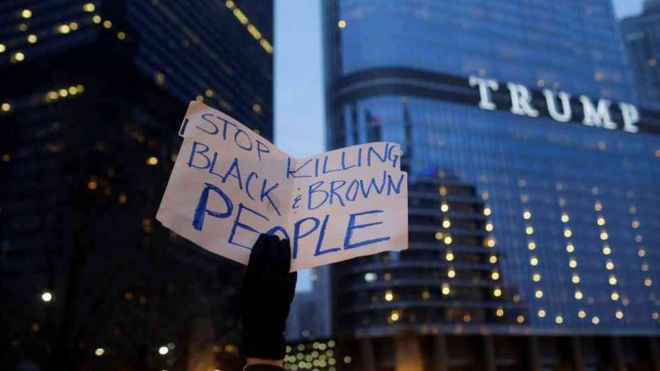Opinion: Press freedom — we will not stop reporting
DW reporters often face police aggression in African countries or Russia. But being under police fire in the motherland of modern democracy is a novelty, says DW Editor-in-Chief Manuela Kasper-Claridge.
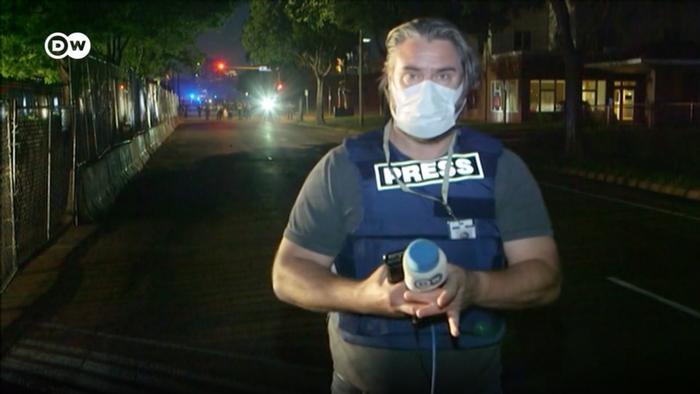
VIDEO 'You’re going to get maced!' Police threaten DW reporter
Permalink https://p.dw.com/p/3dCEl
Recent images of police violence directed at free and independent journalists in the US are extremely disturbing. We journalists, however, are not intimidated. Take my colleague Stefan Simons, who was apparently shot at with a rubber bullet from within a group of police officers, and who went on air live immediately afterward, commenting on the incident. The Bellingcat investigative research website says more than 100 journalists have fallen victim to police violence in the US over the past few days. One of them was Linda Tirado, a photographer, who lost an eye to a rubber bullet.
Read more: US attack on press freedom gains supporters
Those who block us journalists will fail because free and independent reporting is part of democracy's DNA — of course, this is also true in the US, which holds only the 45th place in the Reporters Without Borders ranking of freedom of the press. Journalists in the US now operate in a hostile climate, fueled by verbal attacks by the US president. This has to stop!
Regardless, attempts at intimidation and defamation will remain unsuccessful. We take risks to report on police violence, abuse of power or political failure because everyone has the right to information, even if some people don't like it. Every attack on an individual reporter is an attack on everyone's freedom. We must defend ourselves against the obstruction of free and independent reporting with every constitutional tool available.
Read more: Journalists under threat: June's 10 most urgent cases
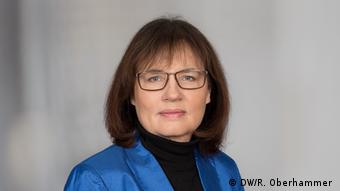
DW Editor-in-Chief Manuela Kasper-Claridge
Deutsche Welle has lodged a formal complaint with the US Embassy over the threat to its correspondent and German Foreign Minister Heiko Maas is demanding the US protect the freedom of the press. Maas also announced plans to investigate the attacks. That's a good thing. In view of the abuses, it is important to keep the broader public informed. Where reporters are hindered from doing their jobs, other rights are also quickly put at risk. So we will continue to provide information about what is happening in the US, Hong Kong, Russia, Germany — and around the globe. We will not let anyone take this freedom from us
DW team in Minneapolis met with police hostility
Once again, DW reporter Sefan Simons has been threatened by police while reporting on the scene in Minneapolis. Although he repeatedly explained that he was from the press and had permission, officers directed their weapons at him, forcing him to leave.
VIDEO
https://www.dw.com/en/dw-team-in-minneapolis-met-with-police-hostility/av-53648098
VIDEO
Germany to take up DW reporter incident with US
Permalink https://p.dw.com/p/3dCEl
DW team confronted by Minneapolis police during nighttime curfew
A DW reporter and his camera operator have been shot at with projectiles by Minneapolis police and threatened with arrest. Reporter Stefan Simons confirmed with "absolute" certainty that the shot was fired by officers behind him as he was preparing to go live on air.
Videos
Germany to take up DW reporter incident with US
Permalink https://p.dw.com/p/3dCEl
DW team confronted by Minneapolis police during nighttime curfew
A DW reporter and his camera operator have been shot at with projectiles by Minneapolis police and threatened with arrest. Reporter Stefan Simons confirmed with "absolute" certainty that the shot was fired by officers behind him as he was preparing to go live on air.
Search Results
Videos
Minneapolis police shoot at, threaten to arrest DW reporter ...
DW News
YouTube - 4 days ago
What's happening in Minneapolis? Reports from the ground ...
DW New
YouTube - 3 days ago
Date 03.06.2020
Author Manuela Kasper-Claridge
Keywords Freedom of press, USA, Minneapolis, Journalists, DW, Stefan Simons
Permalink https://p.dw.com/p/3dCEl
DW News
YouTube - 4 days ago
What's happening in Minneapolis? Reports from the ground ...
DW New
YouTube - 3 days ago
Date 03.06.2020
Author Manuela Kasper-Claridge
Keywords Freedom of press, USA, Minneapolis, Journalists, DW, Stefan Simons
Permalink https://p.dw.com/p/3dCEl
